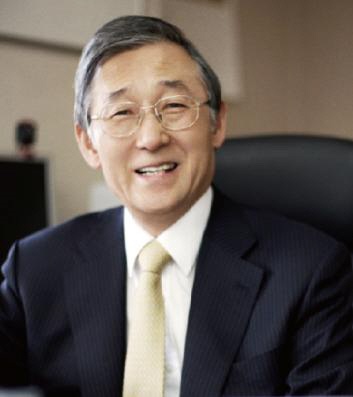people
Dr. Jang-Moo Lee, the incumbent Chairman of the KAIST Board of Trustees, has been re-elected to head the office. His term will begin from the date of approval by the Minister of Science, ICT and Future Planning of Korea and will last for three years.
Dr. Lee received his undergraduate and master’s degrees in mechanical engineering from Seoul National University. He later earned his doctoral degree in mechanical engineering from Iowa State University in the United States.
Joined the faculty of his alma mater in 1976, Dr. Lee held various posts within the university including the dean of the engineering college. He served as the president of the Association of Korean Engineering Colleges, the founding chairman of the Korea Evaluation Institute of Industrial Technology, the president of the Korean Society of Mechanical Engineers, the 24th president of Seoul National University, and the 13th president of the Korean Council for University Education. He now serves as the president of the National Science and Technology Council of Korea and the chairman of Climate Change Center’s Board of Directors.
Dr. Lee has received numerous honors and awards, among others, the Academic Award of the Korean Society of Mechanical Engineers (1985), the Order of Science and Technology Merit from the Korean government (2005), the National Academy of Sciences Award (2005), and the Order of Service Merit in Blue Stripes (2010) from the Korean government. He was also selected as the Alma Mater Proud from Kyunggi High School in 2011.

-
research KAIST Develops World’s First Wireless OLED Contact Lens for Retinal Diagnostics
<ID-style photograph against a laboratory background featuring an OLED contact lens sample (center), flanked by the principal authors (left: Professor Seunghyup Yoo ; right: Dr. Jee Hoon Sim). Above them (from top to bottom) are: Professor Se Joon Woo, Professor Sei Kwang Hahn, Dr. Su-Bon Kim, and Dr. Hyeonwook Chae> Electroretinography (ERG) is an ophthalmic diagnostic method used to determine whether the retina is functioning normally. It is widely employed for diagnosing hereditary
2025-08-12 -
research KAIST Develops AI That Automatically Designs Optimal Drug Candidates for Cancer-Targeting Mutations
< (From left) Ph.D candidate Wonho Zhung, Ph.D cadidate Joongwon Lee , Prof. Woo Young Kim , Ph.D candidate Jisu Seo > Traditional drug development methods involve identifying a target protin (e.g., a cancer cell receptor) that causes disease, and then searching through countless molecular candidates (potential drugs) that could bind to that protein and block its function. This process is costly, time-consuming, and has a low success rate. KAIST researchers have developed an AI model th
2025-08-12 -
event 2025 APEC Youth STEM Science Exchange Program Successfully Completed
<Photo1. Group photo at the end of the program> KAIST (President Kwang Hyung Lee) announced on the 11thof August that it successfully hosted the 'APEC Youth STEM Conference KAIST Academic Program,' a global science exchange program for 28 youth researchers from 10 countries and over 30 experts who participated in the '2025 APEC Youth STEM* Collaborative Research and Competition.' The event was held at the main campus in Daejeon on Saturday, August 9. STEM (Science, Technology, Eng
2025-08-11 -
event 'Team Atlanta', in which KAIST Professor Insu Yun research team participated, won the DARPA AI Cyber Challenge in the US, with a prize of 5.5 billion KRW
<Photo1. Group Photo of Team Atlanta> Team Atlanta, led by Professor Insu Yun of the Department of Electrical and Electronic Engineering at KAIST and Tae-soo Kim, an executive from Samsung Research, along with researchers from POSTECH and Georgia Tech, won the final championship at the AI Cyber Challenge (AIxCC) hosted by the Defense Advanced Research Projects Agency (DARPA). The final was held at the world's largest hacking conference, DEF CON 33, in Las Vegas on August 8 (local time)
2025-08-10 -
event Prof. Seungbum Koo’s Team Receives Clinical Biomechanics Award at the 30th International Society of Biomechanics Conference
<(From Left) Ph.D candidate Jeongseok Oh from KAIST, Dr. Seungwoo Yoon from KAIST, Prof.Joon-Ho Wang from Samsung Medical Center, Prof.Seungbum Koo from KAIST> Professor Seungbum Koo’s research team received the Clinical Biomechanics Award at the 30th International Society of Biomechanics (ISB) Conference, held in July 2025 in Stockholm, Sweden. The Plenary Lecture was delivered by first author and Ph.D. candidate Jeongseok Oh. This research was conducted in collaboration with P
2025-08-10